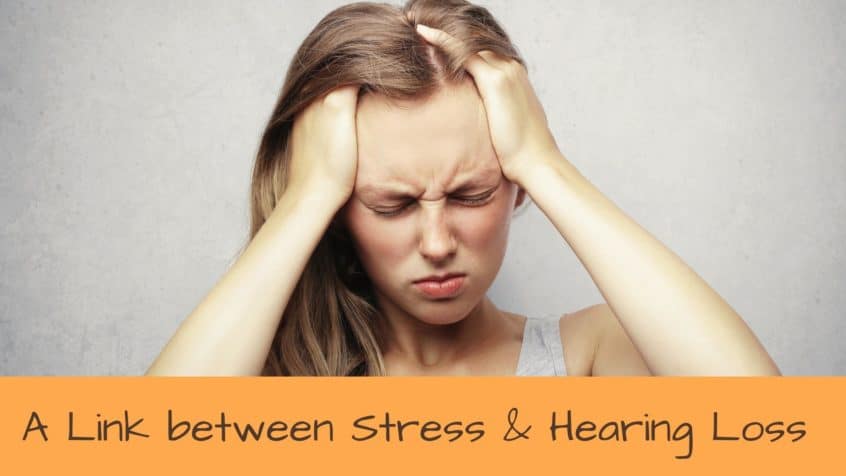A Link between Stress & Hearing Loss

Stress continues to be a concern for a multitude of Americans. In an annual survey conducted by the American Psychological Association (APA), 78% of Americans cited the COVID-19 pandemic as a source of stress in their lives. 67% of adults say their stress level has increased over the course of the pandemic. While these numbers taken alone are alarming, nearly half of Americans (49%) say their behavior has been negatively affected by high stress levels. 21% report holding increased tension in their bodies. 20% say they are more prone to “snapping,” getting angry quickly, or having unexpected mood swings. 17% admit to screaming or yelling at a loved one.
While the pandemic does seem to have increased the amount of chronic stress that Americans are experiencing, even prior to the advent of COVID-19 Americans were reporting high stress levels related to everything from healthcare to mass shootings (66% and 71% respectively).
Chronic stress is not only unpleasant, but brings on physical changes in the body that can wreak havoc on long-term physical health and well-being. Normal stressors are important indicators that we need to alter our behavior or flee from danger, but if the body doesn’t return to a normal resting state after a short time, it can lead to heart disease, hypertension, diabetes and more. These diseases can sometimes cause hearing loss even before they are detected by medical professionals.
Stress, High Blood Pressure and Hearing Loss
Restricted circulation is a major cause of hearing loss, whatever the cause of the restriction itself may be. Anything from a poor diet to an underlying cardiovascular condition, to smoking cigarettes is likely to cause hearing loss if the problem persists. Stress is highly correlated with inflammation throughout the body, and inflammation, in turn, restricts blood flow.
The tiny, hair-like cells inside the inner ear, called “stereocilia,” depend on good circulation to perform their task of translating the mechanical energy of sound into electrical impulses that the brain can perceive. Because these cells are so tiny, blood has to flow through tiny capillaries to reach them and deliver critical nutrients like oxygen to keep them alive and functioning well. Once they expire, they do not grow back or revive. The resulting hearing loss is what we call “sensorineural hearing loss,” which is the kind typically associated with noise exposure and aging. It seems that the more stress we experience, the more likely we are to have this kind of hearing loss.
Reducing Stress
While stress can often feel outside your control, there are some techniques that may help reduce its effects on your health and wellness. The APA provides five suggestions on how to reduce stress:
- Take a Break: Even just a few minutes away from a source of stress can help you regain some perspective and feel less overwhelmed.
- Work Out: 20 minutes of exercise not only reduces stress but provides health benefits including better cardiovascular health.
- Smile and Laugh: Even a “forced” smile can release some tension and help your brain actually experience some joy! Finding reasons to laugh is even better!
- Lean On Social Support: Talk to a friend, loved one, or counselor about what you’re going through. Even articulating your issues can help reduce the stress associated with them, and they may have something helpful to say!
- Meditate: Much like exercise, meditation helps focus and relaxation. Techniques have even been developed for meditation specifically related to hearing loss or tinnitus.
Hearing Aids Can Help
If you’re worried that hearing loss has become an issue for you, even worrying about hearing loss itself is a form of stress. Many of the problems associated with hearing loss can be greatly reduced or eliminated by the use of hearing aids. Hearing aids today not only amplify incoming sound, but help distinguish between background noise and speech, and even adjust their programming automatically as you move through different environments. There are options appropriate for every lifestyle and level of hearing loss.
If hearing loss is causing you or a loved one to worry, make an appointment for a hearing test with our team at Mt. Hood Hearing today! If we believe you could benefit from hearing loss treatment, we will guide you to the best hearing aids for your needs. Your ears, and your overall health and well-being, will thank you!
